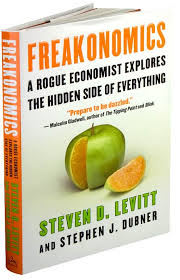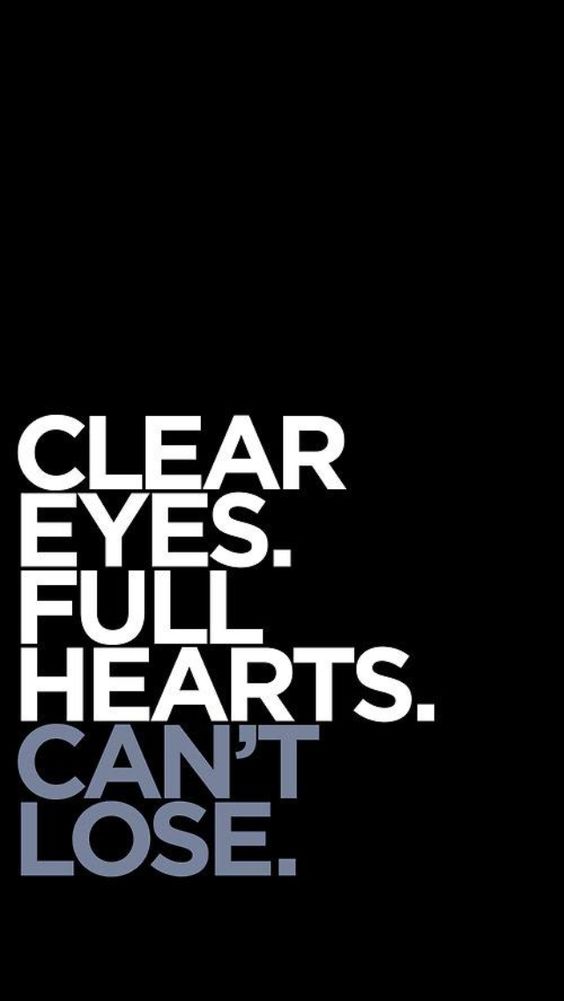
I was listening to the Freakonomics podcast the other day and they were discussing the concepts of Sunk Cost and Opportunity Cost. A quick definition of the two:
Sunk Cost is what we call a situation where you’re only doing something because you’ve put a ton of time into it already. For example, you’re halfway through a graduate degree you’re not sure you want to be getting, but you’ve already put in a year of hard work, time, and money–the work, time, and money invested is your sunk cost. You don’t want to quit because then it feels like all that money, time, and effort was wasted.
Opportunity Cost is the reality that, by continuing to do this activity (the grad school program, say), you’re costing yourself other opportunities. So, for example, because you’re so busy and have invested so much time and effort into this graduate degree, you weren’t able to be the lead singer of your friend’s band (a lost opportunity) or take that cool job a non-profit offered you–another lost opportunity.
Thus, getting this grad degree is the combined sunk and opportunity cost of being a rockstar, a non-profit badass, and you are now 20K in debt and have an ulcer from all those papers you had to write.
This concept of sunk cost and opportunity cost really got my wheels turning. You could apply this to particular projects (the sunk/opportunity cost of working on a book that you know in your heart is just not materializing no matter how many words you write) and also to the whole venture of being a writer and pursuing a word dream. You could apply it to that MFA you’re working towards, or the particular brand/platform that you’ve created for yourself as a writer. Take anything and ask yourself: What is the sunk cost? What is the opportunity cost? Once you have your answer, it’s much easier to make a decision to either cut and run or stick it out. I’m working through this process on a particular project right now and there’s freedom in coming to a decision : if X happens, then I will do Y. It’s so much healthier than just letting the wheels of misery keep turning, hoping in vain for a lightning bolt of inspiration or luck.
One thing nearly every one of my clients either explicitly or implicitly asks is: “How long do I keep trying to get a book published?” Published clients might ask, “How long do I stay in the game when my books aren’t making money and my new offers are slim to none?” It’s totally natural to want the answer to this. Unfortunately, there is no answer. It could be a case where your big break is around the corner, but if you quit now, you’ll never know. Or it could be that life is passing you by while you pine for something that is as elusive as a white tiger.
Back when I was in theatre school I always heard that you had to give acting ten solid years of hustle. If you don’t make it in ten years, then the chances of you making it are pretty much nil. Now, I don’t think that’s true, not completely, but there’s wisdom in this response for actors. The auditioning process is brutal and the older you get, the harder it is to find roles. In order to be an actor, you must have a flexible job that you can ditch at a moment’s notice: not the greatest if you’ve got kids or need healthcare. Most actors burn out because it’s a fucking slog and can be really painful to be in an industry that values good looks over smarts. I don’t think writers need to resort to adopting this adage. For one, writers hit their strides in their forties and have decent chances of producing good work well into their later lives–National Geographic recently mentioned this fact based on, I assume, loads of legit research. Additionally, writers can have full time jobs with benefits etc. and be able to squeeze the writing in when they can. They don’t depend on others to make their art, though, of course they usually depend on others to sell it. We’ve got flexibility and the only thing we need to buy to make our art is a computer every few years. All said, we’re much better off than most aspiring artists.
Still, there is the question of sunk cost and opportunity cost, the mental wrestling we must do with the choice to be a writer. An exploration of sunk/opportunity might look like this:
Sunk Cost: seven years of writing almost every day, three completed books that no one has bought yet, an MFA, thousands paid in coaching and editing services, hours of craft study, active involvement in the writing community via social media and building a platform (blog etc), cost of writer website design and attending conferences, huge emotional investment, etc. etc.
Opportunity Cost: turned down a few cool job offers, didn’t start that business you were super excited about, never learned a second language, less time with kids and family/friends, no time to exercise and pay attention to health, vacations spent writing instead of doing cool things, unable to do cool things (travel, cultural events, etc.) because of part-time job (so you can write) instead of full-time job with better pay, etc. etc.
How long should you give it a go? The best way to assess this is to ask yourself these questions–preferably sober and not during a self-hatred spiral:
- Would I keep writing if I found out I was never going to be published?
- Does writing bring me joy?
- What would I do if I wasn’t pursuing a career in writing?
- Am I doing everything I can to succeed (working on my craft, hustling, living life as writing in terms of discipline & dedication to the pursuit)?
- What are the stakes? (Of continuing on or of quitting?)
- What sacrifices have I made, and what sacrifices am I willing to make, and not willing to make?
- What is the sunk cost of this dream of mine?
- What is the opportunity cost?
There are no crystal balls: just your guts, good sense, and a compass pointing toward your True North.
Only you can answer these questions. I don’t need to tell you the odds of getting traditionally published, or the chances of making real money you can live off of as a writer. Being a writer is accepting a lifetime of uncertainty, financial instability, and the ups and downs of creative flow–and all that entails (mentally, emotionally, spiritually, physically). I know writers with marital problems because their spouses are tired of being broke and are worried that the pursuit of writing is taking away from their children’s futures. I know writers who have been giving it their all for years and have been published, but are seeing very little returns financially. I know writers who’ve hit the publishing jackpot, and ones who feel like they’re buying a lottery ticket every time they send their book out. Here’s one thing I do think applies from my theatre school days: If you’re uncertain about continuing on as a writer and you can see yourself doing anything else in your life other than writing, then do that other thing instead. Provided, of course, that that other thing isn’t just as hard and uncertain as writing and that you are passionate about that other thing.
The world doesn’t need another writer.
The world needs Word Warriors who have no choice but to write. It needs people with a calling, artists who have a vocation, who are devoted to the craft and who would write regardless of recognition or financial gain because it is who they are. The best writing, the best contribution to the written human story, always comes from these people. If that’s you, welcome. If that’s not you, then good thing you’ve realized it–now let yourself off the hook and go do something else (P.S. You can always change your mind if, upon stopping writing, you see it’s left a big, gaping hole in your life and you’re fucked without it). If you’re not sure about your status as a Word Warrior, then it’s time to dark-night-of-the-soul this shit. Be unflinching as you ask yourself the above questions. Be honest and brave and leave your ego and baggage at the door. What do you want? Why do you want it? This is the question I ask my characters every day and I’m asking you now.
What do you want? Why do you want it?

(Image credit here)
If you’re going to go for it, you need to simultaneously proceed with a fire lit under your ass and the knowledge that even if it doesn’t happen, the effort and sacrifice will have been worth it. Believe with all your heart that you can do it, or don’t bother. You’re totally going to make it / You totally might not make it. This paradox rests on a delicate scale–anything can tip the balance. But it doesn’t matter which way it ultimately tips (and, oh, the world is so mysterious–never forget that) because you’re a writer. You have no choice, at least not if you want to have a reasonably sane existence.
Some people who want to write books don’t have the fire. They don’t write with the blood (to steal a phrase from the Maestro in Mozart in the Jungle). So they might be investing loads of time and money and effort into a writing career that will only succeed in giving them demonstrable returns (i.e. a book deal) if they get stupid lucky in either traditional or self publishing. And that does happen (to, like, ten people). These are people for who the sunk cost and opportunity cost of writing suggest it’s time to go in a different direction. Which is totally fine! They’re not writers, they’re hobbyists–writers write with the blood and do so regardless of whether or not any money is exchanged for their words*. If you’re a hobbyist, why would you live a less-happy and less-abundant life for the sake of a dream that isn’t even what you really, at your core, want?
*Quick note: I am not one of those people that thinks you shouldn’t want to make money. I write with the blood and I also bloody well want to be paid for my hard work. Getting paid doesn’t make me less of an artist–it makes me really fucking fortunate.
None of this has anything to do with whether you’re good at writing–that’s a whole other can of worms. If you suck at it, take heart: Some of the shittiest writers are the highest paid and on the New York Times bestseller list. Anything can happen. It’s not my call and not my place to tell you if you’re going to make it, unless, of course, I suddenly develop heightened psychic abilities and know for a fact that you’re going to end up a miserable old cat lady, single and still working on the damn book you started when you were in undergrad. More importantly, you should never put yourself in a power dynamic in which you will allow someone to give you the green light on your dreams. Because it literally does not matter what anyone thinks of your writing–what matters is what you think of your writing. Although, please, for the love of God, if you’re not good at it, get off your ass and get better. Respect the craft, your readers, and yourself. Do right by all three and you’ll be fine.
Write on, Warriors.